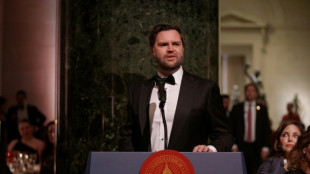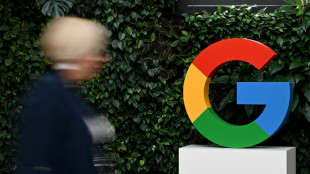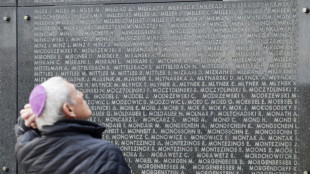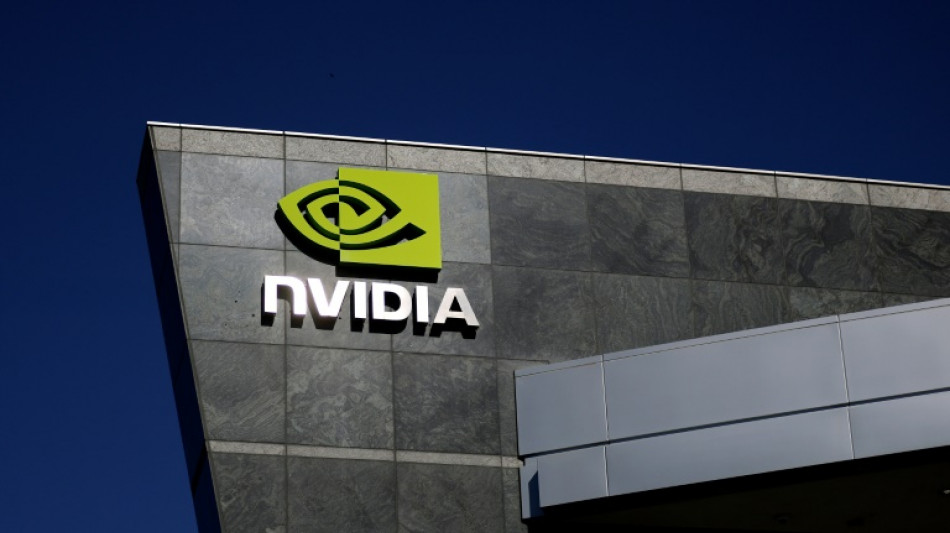
-
 WHO countries reach landmark agreement on tackling future pandemics
WHO countries reach landmark agreement on tackling future pandemics
-
Stocks struggle again as Nvidia chip curb warning pops calm
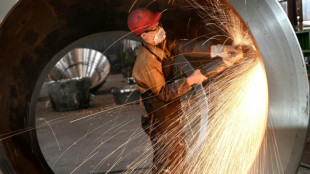
-
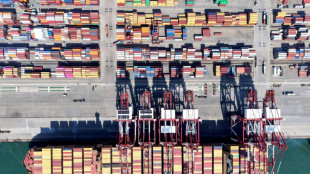 China's economy beats forecasts ahead of Trump's 'Liberation Day'
China's economy beats forecasts ahead of Trump's 'Liberation Day'
-
China's economy beat forecasts in first quarter ahead of Trump's 'Liberation Day'
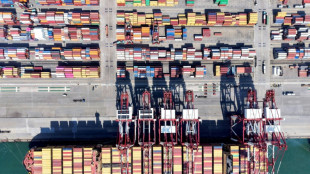
-
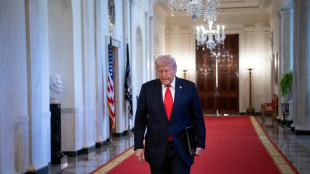 Trump orders critical minerals probe that may bring new tariffs
Trump orders critical minerals probe that may bring new tariffs
-
Onana faces date with destiny as Man Utd chase Lyon win
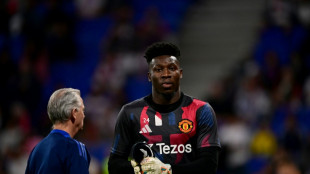
-
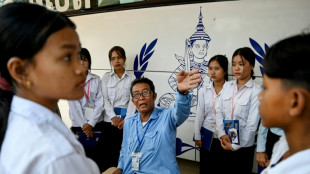 Lessons in horror with Cambodia's Khmer Rouge tribunal
Lessons in horror with Cambodia's Khmer Rouge tribunal
-
Pandemic agreement: key points
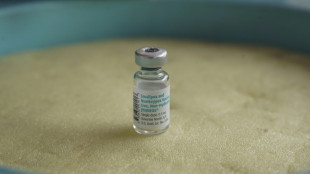
-
 Paramilitaries declare rival government as Sudan war hits two-year mark
Paramilitaries declare rival government as Sudan war hits two-year mark
-
Landmark agreement reached at WHO over tackling future pandemics
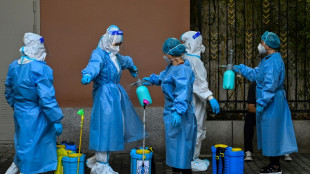
-
 'La bolita,' Cuban lottery offering hope in tough times
'La bolita,' Cuban lottery offering hope in tough times
-
'Toxic beauty': Rise of 'looksmaxxing' influencers

-
 Facebook added 'value' to Instagram, Zuckerberg tells antitrust trial
Facebook added 'value' to Instagram, Zuckerberg tells antitrust trial
-
Trump signs order aimed at lowering drug prices
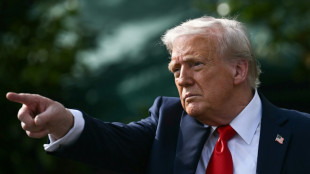
-
 Paramilitaries declare rival government as Sudan war enters third year
Paramilitaries declare rival government as Sudan war enters third year
-
Nvidia expects $5.5 bn hit as US targets chips sent to China
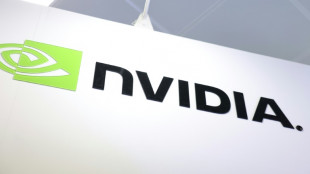
-
 Emery targets 'next step' for Aston Villa after Champions League heroics
Emery targets 'next step' for Aston Villa after Champions League heroics
-
'Gap too big' for Dortmund after first leg, says Guirassy

-
 Maradona's daughter says doctors could have prevented his death
Maradona's daughter says doctors could have prevented his death
-
Barcelona 'justified' semi-final spot despite Dortmund loss, says Flick

-
 'We thought the tie was over': Dembele admits PSG switched off against Villa
'We thought the tie was over': Dembele admits PSG switched off against Villa
-
Wine consumption falls heavily into the red

-
 Barca through to Champions League semis despite Guirassy hat-trick
Barca through to Champions League semis despite Guirassy hat-trick
-
Global stocks mixed amid lingering unease over trade war
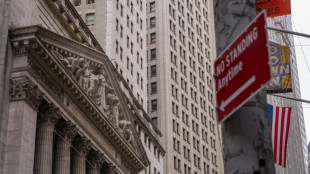
-
 PSG survive Aston Villa scare to reach Champions League semis
PSG survive Aston Villa scare to reach Champions League semis
-
Pandemic treaty talks fight late hurdles
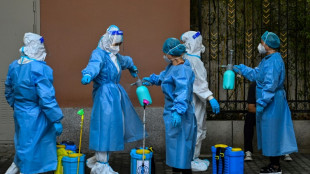
-
 Trump resurrects ghost of US military bases in Panama
Trump resurrects ghost of US military bases in Panama
-
Family seeks homicide charges against owners of collapsed Dominican nightclub
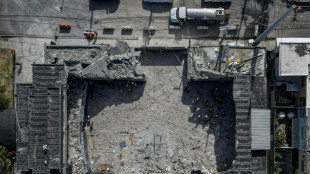
-
 Sudan paramilitary chief declares rival government two years into war
Sudan paramilitary chief declares rival government two years into war
-
Boeing faces fresh crisis with US-China trade war
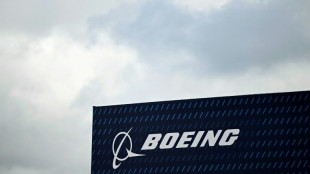
-
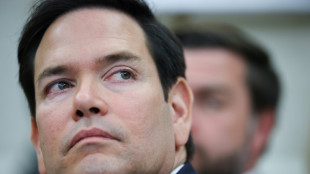 Trump eyes slashing State Department by 50 percent: US media
Trump eyes slashing State Department by 50 percent: US media
-
Canada offers automakers tariff relief, Honda denies weighing move

-
 Facebook added 'value' to Instagram, Zuckerberg says in antitrust trial
Facebook added 'value' to Instagram, Zuckerberg says in antitrust trial
-
French Ligue 1 clubs vote to break TV deal with DAZN

-
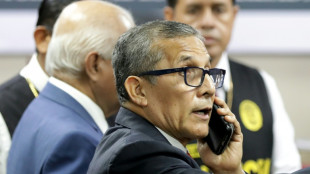 Peru court sentences ex-president Humala to 15 years for graft
Peru court sentences ex-president Humala to 15 years for graft
-
Sumy buries mother and daughter victims of Russian double strike

-
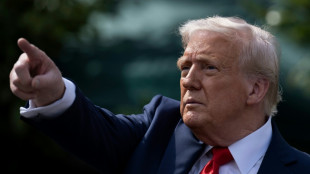 Trump says ball in China's court on tariffs
Trump says ball in China's court on tariffs
-
Kane urges Bayern to hit the mark against Inter in Champions League

-
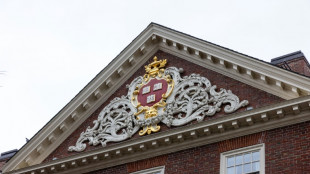 Trump ramps up conflict against defiant Harvard
Trump ramps up conflict against defiant Harvard
-
Arteta feeding Arsenal stars 'opposite' of comeback message

-
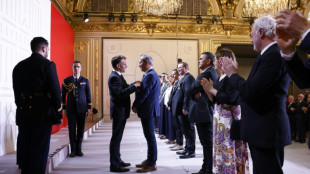 France's Macron honours craftspeople who rebuilt Notre Dame
France's Macron honours craftspeople who rebuilt Notre Dame
-
Watkins left on Villa bench for PSG return

-
 Chahal stars as Punjab defend IPL's lowest total of 111 in 'best win'
Chahal stars as Punjab defend IPL's lowest total of 111 in 'best win'
-
French swim star Marchand considered taking year-long break

-
 Chahal stars as Punjab defend IPL's lowest total of 111
Chahal stars as Punjab defend IPL's lowest total of 111
-
Universal Studios, Venice Beach to host LA 2028 events

-
 IOM chief urges world to step up aid for Haiti
IOM chief urges world to step up aid for Haiti
-
French prisons hit by mystery arson and gunfire attacks
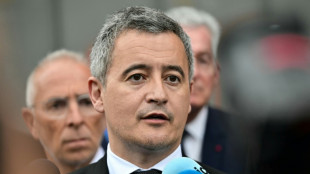
-
 Alcaraz follows Ruud into Barcelona Open last 16
Alcaraz follows Ruud into Barcelona Open last 16
-
Stocks rise on bank earnings, auto tariff hopes
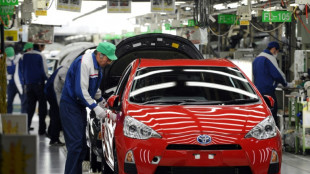

Nvidia to build supercomputer chips entirely in US for first time
Nvidia on Monday announced plans to build top-end artificial intelligence supercomputer chips entirely in the United States for the first time.
Supercomputer plants are being built in Texas in partnerships with Foxconn and Wistron, with manufacturing expected to ramp up over the course of the next 12 to 15 months, according to the Silicon Valley-based company.
TSMC plants in Arizona have already started production of Nvidia's most advanced graphics processing unit (GPU), called Blackwell, Nvidia added.
"The engines of the world's AI infrastructure are being built in the United States for the first time," Nvidia chief executive Jensen Huang said in the blog post.
"Adding American manufacturing helps us better meet the incredible and growing demand for AI chips and supercomputers, strengthens our supply chain and boosts our resiliency."
Nvidia plans to produce as much as half a trillion dollars worth of AI infrastructure in the United States by the end of this decade through partnerships with TSMC, Foxconn, Wistron, Amkor and SPIL.
"Onshoring these industries is good for the American worker, good for the American economy, and good for American national security," the White House said in a statement.
The US government has clamped down on the export of sophisticated AI chips to China due to national security concerns, and keeping production close to home could allow for tighter control of designs and products.
Now, chips are poised to get caught up in a trade war between the US and China.
On Air Force One Sunday, Trump said tariffs on semiconductors -- which power any major technology from e-vehicles and iPhones to missile systems -- "will be in place in the not distant future."
"We want to make our chips and semiconductors and other things in our country," Trump reiterated.
The US president said he would announce tariffs rates for semiconductors "over the next week" and Commerce Secretary Howard Lutnick said they would likely be in place "in a month or two."
T.Zimmermann--VB

